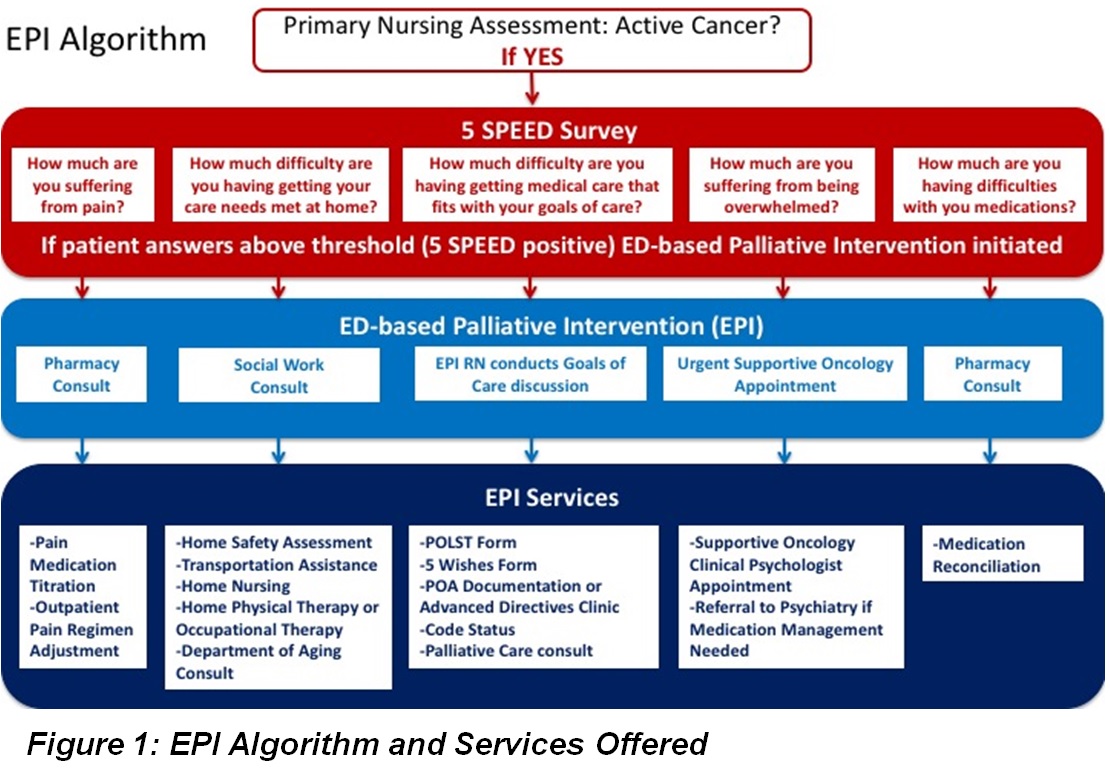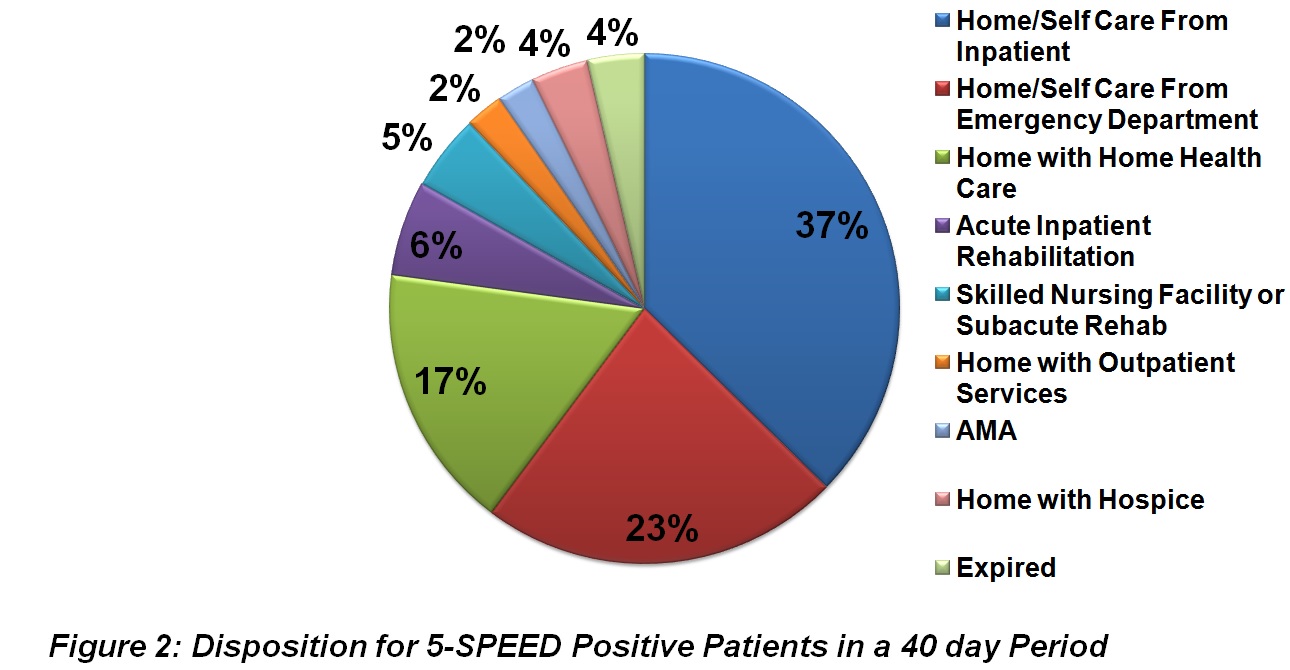Presenting Author:
Alison Marshall, M.D.
Principal Investigator:
Scott Dresden, M.D.
Department:
Emergency Medicine
Keywords:
emergency department, emergency medicine, palliative care, palliative, social work, pharmacy, cancer, cancer care, hospi... [Read full text]
Location:
Ryan Family Atrium, Robert H. Lurie Medical Research Center
C30 - Clinical
Addressing Unmet Cancer Care Needs Through ED-Based Palliative Interventions
Introduction Palliative care has been shown to be a cost effective means of delivering medical care that improves patient-centered outcomes. Despite substantial ED utilization by oncology patients, the exact incidence of palliative care needs in active cancer patients presenting to the ED has not been well characterized in the literature. The SPEED survey is the only ED screening mechanism in the literature that details the derivation of an ED-specific palliative care tool. An adapted five question needs assessment termed 5-SPEED focuses on five key areas of palliative care: pain management, home care, medication management, psychological support, and goals of care. Objectives We seek to: • Determine the extent of unmet palliative care needs in oncology patients seeking care at the Northwestern Memorial Hospital (NMH) ED utilizing the 5-SPEED survey • Implement ED-based palliative interventions (EPIs) for all active cancer patients with identified areas of need including pharmacy consultations, social work (SW) consultations, palliative trained registered nurse (EPI RN) consultation and urgent outpatient supportive oncology clinic referral service (PRS) Methods Starting 12/2016, all patients presenting to the ED with active cancer (as defined by cancer treatment in last year and/or presenting symptoms thought to be due to cancer) have the 5 SPEED survey administered by ED nurses. Those patients with a score at or above threshold in a given category are deemed SPEED positive and are automatically referred to the appropriate EPI pathway (Figure 1) and subsequent intervention based on their specific need. Preliminary Results Preliminary data for a 40 day pilot period of EPI screening revealed 83 patients having been discharged from the hospital after screening SPEED positive. In this preliminary group, 49 (59%) were admitted to inpatient status, 15 (18%) were admitted to observation, and 19 (23%) were dispositioned from the ED. The majority of (60%) of the patients were sent home while a sizeable portion were sent home with health services. 3 patients (4%) were sent home with hospice while another 3 (4%) had inpatient or ED mortality (Figure 2). An average of ~2 patients a day were discharged from NMH who were SPEED positive. When adjusted for all patients with active cancer or cancer-related chief complaints to the ED (~2800/year), this equates to roughly 29.6% of active cancer patients presenting to the ED with active palliative care needs before discharge, as defined by the 5-SPEED survey. Discussion Consistent with previous data, we found almost 30% of patients with active cancer have palliative needs identified prior to ED discharge. Our EPI process has begun to identify and address those needs. Future data pulls will examine prevalence of palliative needs by category and what interventions those patients received. We hypothesize these interventions will have an impact on the cost and quality of care delivered to cancer patients.


